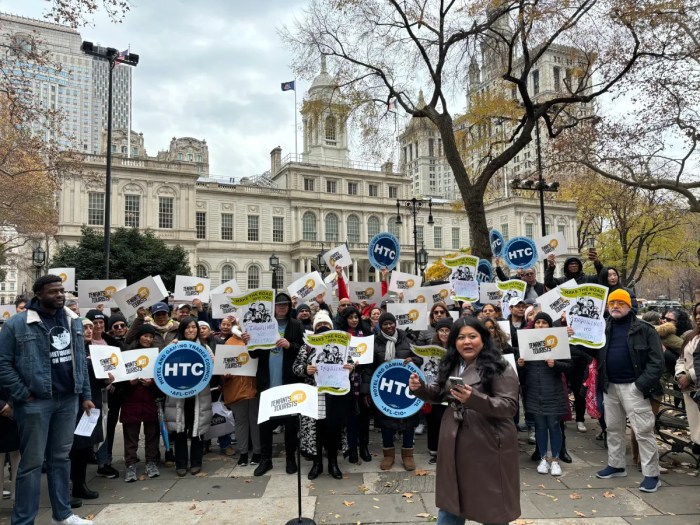By Madina Toure
State Assemblywoman Nily Rozic (D-Fresh Meadows) praised the recent passage of a law that prohibits the shackling of pregnant women throughout all stages of pregnancy.
The bill bans the use of restraints during the transport of all pregnant inmates at state and local correctional facilities throughout their entire pregnancy and within eight weeks after the delivery except in the most extraordinary of circumstances. Gov. Andrew Cuomo signed the bill into law Dec. 22.
Rozic said the law is “another step in the right direction for the prison reform movement in New York state.”
“As the sponsor of (other) legislation that would ban incarcerated pregnant women from being placed in solitary confinement I am pleased to see significant advancements being made to address the treatment of women in prison,” Rozic said in a statement. “Gov. Cuomo’s decision to sign anti-shackling legislation into law not only enacts critical protections, but serves as an example to the remaining states that allow the use of this degrading practice.”
Cuomo said the law would help ensure safety for pregnant inmates.
“These common sense reforms strike the right balance that protect the health and dignity of a pregnant inmate, while also addressing public safety concerns,” he said in a statement. “This legislation has made New York’s criminal justice system fairer and stronger, and I thank the sponsors and advocates who worked so hard to get it passed.”
While current law bans the use of restraints on an inmate who is about to give birth, it does not address the use of restraints on pregnant inmates before or after childbirth.
Restraints are currently being used on pregnant inmates in a number of situations ranging from trips to weekly medical appointments to trips between prisons, which can take more than 10 hours.
Such acts heighten the risk of blood clots, limit the mobility needed for a safe pregnancy and delivery and increase the risk of falling, which could cause a miscarriage, according to Cuomo.
The bill also prohibits the presence of any correctional staff in the delivery room unless requested by the medical staff or the inmate giving birth and requires more rigorous training of all correctional staff on the policy as well as annual detailed reporting of all instances in which officers believed restraints were necessary.
Reach reporter Madina Toure by e-mail at mtour




































